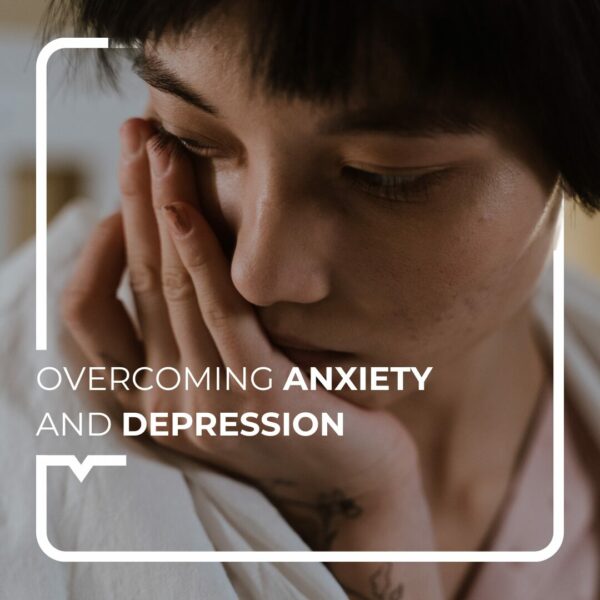Hello, this is Dr Joy.
Today I want to talk to you about something that concerns us all: managing our emotions.
Managing them can be a difficult task when we haven’t learned to identify and understand them. Our emotional well-being depends on our ability to learn how to better manage the emotions we feel on a daily basis.
In this article, you’ll find out how emotion management works and why you sometimes have difficulty managing them.
We’ll also look at how these buried emotions can surface involuntarily and the consequences they can have.
I’ll also give you methods for learning how to manage your emotions better on a day-to-day basis so that you can live a fulfilled life.
Let’s get started!
Emotions fall into two categories:
- Simple : such as fear, joy, sadness, anger, disgust, and surprise.
- Complex : which are a combination of the simple emotions.
1 – What is emotional management?
It’s the ability to take control of your emotions. This does not mean ignoring or suppressing them. It’s about welcoming them, understanding them and dealing with them effectively so that you can live your daily life in harmony and peace.
There are 3 types of emotion:
- Pleasant : which mark the satisfaction of our needs,
- Neutral : which generally go unnoticed,
- Unpleasant : which cause us pain and which we try to avoid or put off.
Understanding the cause of your difficulties in managing your emotions is essential if you are to begin the process of freeing yourself and feeling better in your daily life.
2 – Why is it difficult for us to manage our emotions? Where do they come from and why are they difficult to manage?
There are several explanations:
- Family emotional legacy: If you were not encouraged to express your emotions as a child, it is likely that you will continue to suppress them.
- Social pressure: In a society that is more concerned with ‘appearing’ than ‘being’, you may feel pressured to hide your emotions.
- Fear of vulnerability: if you’ve been repressing your feelings for too long, you may be afraid of what will happen if you dare to open your heart.
- Professional Rationality: In the world of work, reason is more important than emotion.
It can be difficult to manage them for different reasons:
- If you are very sensitive,
- If you have not been taught to express them in a healthy way,
- If the power of emotions surprises and frightens you.
Trying to manage an emotion without understanding it is not a viable long-term method: your emotions will always try to express themselves.
3 – What happens when a negative emotion emerges?
When you feel a negative emotion such as stress, anxiety or anger, it’s natural to try to bury it to avoid experiencing an unpleasant moment. Unfortunately, these ignored emotions tend to resurface and overwhelm you in the future.
Result:
- Poorly managed anger can lead to conflict that could have been avoided.
- Accumulated stress can lead to burnout.
- Untreated anxiety can turn simple everyday tasks into sources of anxiety and fear.
Stress management, anxiety management and anger management are all necessary skills for emotional wellbeing and fulfillment.
If you feel that you are struggling to manage your emotions daily, there are solutions that can help.
4- What methods can you use to learn to manage your emotions better?
- Sophrology: This helps you to anticipate and reduce unpleasant emotions. You learn to feel them, understand them, accept them and reduce their intensity. This enables you to consciously regulate them and respond in a healthy way.
Through rhythmic breathing and dynamic relaxation exercises, you learn to release tension. Sophrology is ideal for stress and anger management.
- EMDR: This method uses eye movements, auditory stimulation and tactile stimulation. It activates the part of the brain where the emotions are located so that they can be welcomed, accepted and released so that they no longer have a hold on your daily life.
Buried emotions are brought out in a safe, caring environment, allowing you to process them calmly and without risk.
- EFT: This is a technique designed to balance the body’s energy and release the emotions that are blocking the flow of life. EFT enables us to identify painful memories and the associated emotions that block them. By tapping on acupuncture points, it helps to release these emotions and deprogram the reactions that are engrained in us.
EFT is a great help in dealing with stress and anxiety.
- Psychology: It helps you to understand your past and how you function. Psychology can help you to identify your difficulties and the emotions they cause, so that you can understand, accept and release them.
Depending on your needs, there are different forms of psychotherapy, some focusing more on your current situation, others on the causes of your difficulties or on your environment.
Learning to manage your emotions better is important for your emotional wellbeing and a fulfilling daily life.
The methods you develop for managing anger or stress are tools that will stay with you throughout your life, helping you to better welcome, understand and release your emotions.
Need help mastering these tools? Contact our specialists Claire Colson et Béatrice De Possesse.



